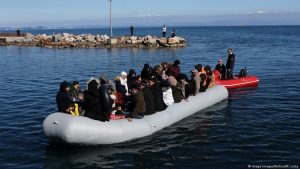Exit polls of Slovenia’s parliamentary election on Sunday have suggested an opposition liberal party making a landslide victory, dealing a major defeat to populist Prime Minister Janez Jansa, who was accused of pushing the small European Union country to the right while in office.
The polls conducted by the Mediana polling agency and published by public broadcaster TV Slovenia and commercial Pop TV, showed that opposition Freedom Movement won 35.8% support compared with the ruling conservative Slovenian Democratic Party with 22.5%.
Also read: ‘I think he will’: Zelensky invites Biden to Ukraine, shows hope for visit
Trailing behind the top two contenders were the New Slovenia party with 6.8%, followed by the Social Democrats with 6.6% and the Left party with 4.4%. The polls have proven reliable in the past.
If confirmed in an official tally, the result means that the Freedom Movement, a newcomer in the election, stands likely to form the next government in a coalition with smaller center-left groups. The party leader addressed supporters via a video message from his home because he has COVID-19.
Also read: Zelensky invites Macron to see proof of ‘genocide’ French president denied
“Tonight people dance,” Robert Golob told the cheering crowd at the party headquarters. “Tomorrow is a new day and serious work lies ahead.”
In a tweet, Jansa said, “thank you for your vote.”
Also read: In French presidential election majority will leave ballot papers blank, survey suggests
It still remains unclear which, if any, other smaller groups will be able to pass the 4% threshold and what the final distribution of parliamentary seats will look like.
Jansa, a veteran politician, became prime minister a little over two years ago after the previous liberal premier resigned. An admirer of former U.S. President Donald Trump, Jansa had pushed the country toward right-wing populism since taking over at the start of the COVID-19 pandemic.
Also read: France goes to vote as Emmanuel Macron challenge Marine Le Pen in presidential elections
Reflecting strong interest in Sunday’s election, turnout was higher than usual — nearly 50% of Slovenia’s 1.7 million voters had cast ballots by mid-afternoon, up some 15% compared with the previous election in 2018.






